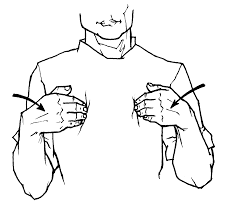记忆方法
将“have”与拥有实际物品的情景联系起来,例如:“He have a book” 可以想象为“他拥有一本书”。这样,通过“have”代表“拥有”这一动作,帮助记忆其含义。
以上内容由AI生成, 仅供参考和借鉴
中文词源
have 有,拥有
来自古英语habban,拥有,占有,来自Proto-Germanic*haben,来自PIE*kap,抓住,词源同capable,heavy.
英语词源
- have
-
have: [OE] Have and its Germanic cousins, German haben, Dutch hebben, Swedish ha, and Danish have, come from a prehistoric Germanic ancestor *khabēn. This was probably a product of Indo-European *kap-, which was also the source of English heave and Latin capere ‘seize’ (whence English capable, capture, etc). In all the Germanic languages it shares the function of denoting ‘possession’ with that of forming the perfect tense. (It appears, incidentally, to have no etymological connection with the superficially similar Latin habēre ‘have’.)
=> capable, captive, capture - have (v.)
- Old English habban "to own, possess; be subject to, experience," from Proto-Germanic *haben- (cognates: Old Norse hafa, Old Saxon hebbjan, Old Frisian habba, German haben, Gothic haban "to have"), from PIE *kap- "to grasp" (see capable). Not related to Latin habere, despite similarity in form and sense; the Latin cognate is capere "seize.
Sense of "possess, have at one's disposal" (I have a book) is a shift from older languages, where the thing possessed was made the subject and the possessor took the dative case (as in Latin est mihi liber "I have a book," literally "there is to me a book"). Used as an auxiliary in Old English, too (especially to form present perfect tense); the word has taken on more functions over time; Modern English he had better would have been Old English him (dative) wære betere.
To have to for "must" (1570s) is from sense of "possess as a duty or thing to be done" (Old English). Phrase have a nice day as a salutation after a commercial transaction attested by 1970, American English. Phrase have (noun), will (verb) is from 1954, originally from comedian Bob Hope, in the form Have tux, will travel; Hope described this as typical of vaudevillians' ads in "Variety," indicating a willingness and readiness to perform anywhere.
权威例句
- 1. The verb should be in the plural, e . g . " have " in " they have " .
- 这个动词应用复数形式, 如theyhave中的 have.
- 2. Sometimes things have to fall apart to make way for better things.
- 有时候要到达谷底,才会慢慢变好。
- 3. You have to do everything you can. You have to work your hardest. And if you do, if you stay positive, then you have a shot at a silver lining.
- 你必须全力以赴,最大限度地去努力。如果你这么做,并且保持乐观,你就会看见乌云背后的幸福线。
- 4. Remember, happiness doesn't depend upon who you are or what you have; it depends solely upon what you think.--Dale Carnegie
- 请记住,幸福不在于你是谁或者你拥有什么,而仅仅取决于你的心态!
- 5. They have maintained their optimism in the face of desolating subjugation.
- 面对遭征服的悲惨命运,他们保持了乐观的态度。

